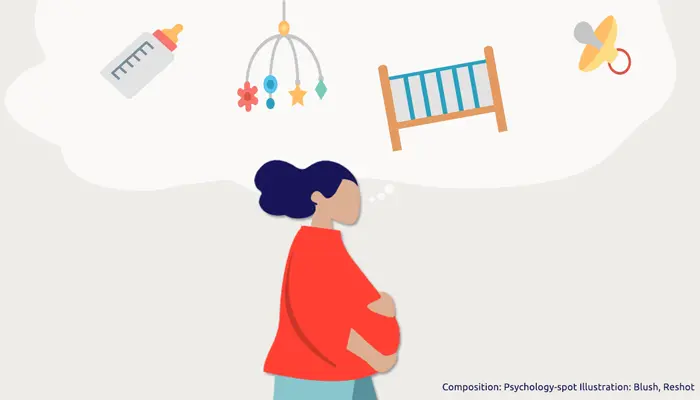
We all know that pregnancy brings many changes, both physical and psychological, even though most of these troublesome symptoms disappear soon after the childbirth. However, very little is known about the impact of pregnancy on the brain. Can pregnancy change the brain of the mother? For how long? Some researchers at the Autonomous University of Barcelona have been trying to answer these questions by analyzing for the first time the effect of pregnancy on the brain of future mothers.
During pregnancy there is a synaptic pruning
These researchers compared the data from the magnetic resonance of 25 mothers before and after pregnancy with those of their male partners as well as with those of a control group of 20 women who had never been pregnant, along with their partners. All these people were followed for five and a half years.
In this way it was discovered that during pregnancy do occur changes in the morphology of the brain, and that these do not disappear immediately after birth, but are maintained for at least two years.
The researchers found that after the first pregnancy, the woman’s brain shows a significant reduction in the volume of gray matter in regions associated with social cognition.
In particular, there’s a symmetrical reduction in the volume of gray matter in the frontal line, middle, and back of the cortex, as well as in specific areas of the prefrontal and temporal cortex in pregnant women. These areas are part of a network associated with the processes of social cognition and self-processing.
It was also found that the areas in which occurs a reduction in gray matter overlapped with regions of the brain that are activated when mothers observe images of their children. This means that the changes apply only to areas related to the functions necessary to meet the challenges of motherhood, so it is an adaptive process of functional specialization toward motherhood.
Interestingly, the researchers were also able to predict the attachment that the mother would have for her child immediately after birth simply by looking at the changes occurring in her brain while she was pregnant.
The loss of gray matter is not necessarily something negative
The fact that the volume of gray matter is reduced isn’t necessarily a bad thing. For example, a previous study conducted at the University of Maryland has revealed that people who have developed a better “Theory of Mind”; ie, that understand the others and are able to put in their place, they also have a smaller volume of gray matter in these brain regions.
In fact, these changes are similar to the synaptic pruning that occurs during adolescence, when hormones also undergo a revolution and the weaker synapses are removed to leave place to the more efficient and specialized neural networks, in particular in the areas related to social and emotional relations, and this allows the teenager to better adapt to his new role in the society.
This parallelism has led scientists to speculate that the brain changes in pregnant women may be due to hormonal changes, which would ensure that some areas of the brain work more efficiently to enable women to take better care of their children.
Therefore, these changes could be the basis of the maternal instinct, allowing the mother to quickly recognize the needs of her child, identify social threats that arise and strengthen the emotional bond.
In fact, the researchers found no changes in memory, attention, language, and thinking of the mothers, so this loss of gray matter does not involve any cognitive impairment and should not be considered negative, but simply another example of brain plasticity, rapidly changing to adapt to new environmental requirements.
Sources:
Hoekzema. E. et. Al. (2016) Pregnancy leads to long-lasting changes in human brain structure. Nature Neuroscience.
Rice, K. & Redcay, E. (2015) Spontaneous mentalizing captures variability in the cortical thickness of social brain regions. Soc Cogn Affect Neurosci; 10 (3): 327-334.



